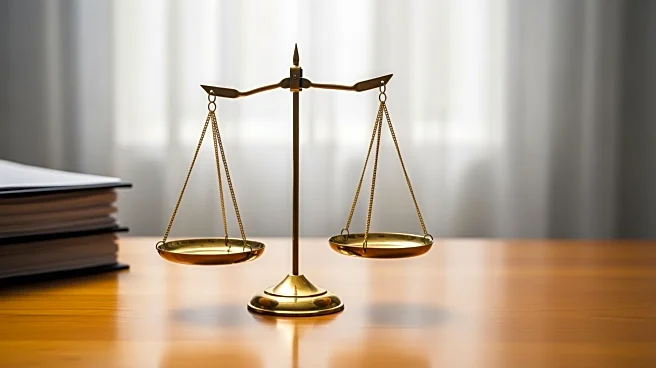What's Happening?
A new provision in a Senate spending bill would allow senators to sue the U.S. government for unauthorized searches of their communications data. This measure, which has cleared a Senate procedural hurdle, grants senators the right to bring civil lawsuits
against the government and potentially individual federal employees if their data is accessed without their knowledge. The bill specifies that each unauthorized search could result in a minimum award of $500,000, provided the senator was not the target of the investigation. This provision is part of a broader legislative branch bill aimed at reopening the government and applies retroactively to January 1, 2022. The bill does not specifically mention Special Counsel Jack Smith or the FBI's operation to obtain phone data of Republican lawmakers, but it would cover actions taken during investigations related to President Trump.
Why It's Important?
This provision is significant as it addresses concerns about privacy and government overreach, particularly in the context of investigations involving political figures. It reflects ongoing tensions between the legislative and executive branches over the handling of sensitive data and the rights of lawmakers. The ability for senators to sue for unauthorized searches could lead to increased scrutiny of investigative practices and potentially impact how future investigations are conducted. It also highlights the political dynamics at play, as the provision has garnered support from both Republican and Democratic senators, indicating bipartisan concern over privacy issues.
What's Next?
If enacted, this provision could lead to legal challenges from senators whose data was accessed during investigations. It may prompt further legislative discussions on privacy and data protection for government officials. The bill's passage could also influence future negotiations between the Senate and the executive branch regarding oversight and accountability in federal investigations. Stakeholders, including political leaders and civil rights groups, may weigh in on the implications of this provision and its potential impact on government transparency and accountability.














